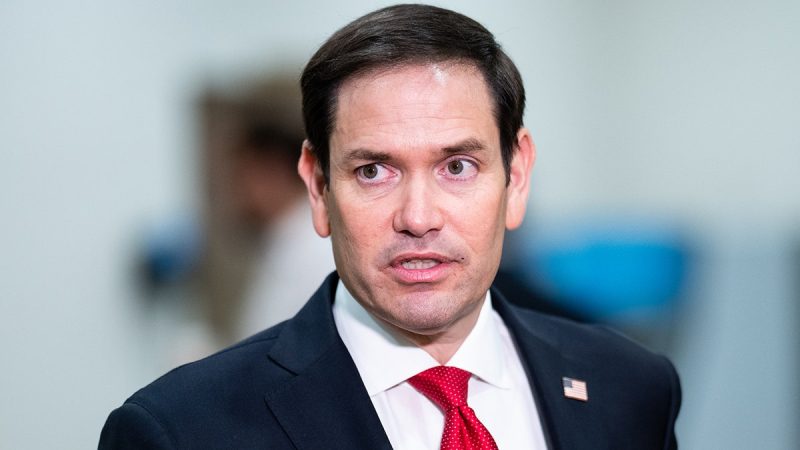In a recent turn of events, Senator Marco Rubio of Florida has emerged as the most vocal supporter of Donald Trump against his critics accusing the former President of exhibiting characteristics of fascist leadership during his tenure.
Rubio fired back at Trump’s critics in a fierce defense of the former president. He addressed the accusations which label Trump as a fascist to be grossly misleading and misguided. The widespread allegations are a result of a concentrated effort to undermine Trump’s leadership and policies, according to Rubio. He further argued that these critics are utilizing the term fascist without a clear understanding of its historical connotations, thereby diminishing its gravity.
Applying the term fascist to Trump, according to Rubio, isn’t just an inaccurate evaluation but also an unfair comparison that demonizes the former president’s policy decisions. He explains that these critiques inaccurately link Trump’s political strategy to those of dictators such as Adolf Hitler and Benito Mussolini.
Trump, throughout his presidency, influenced American policies based on his populist perspectives. His autocratic tendencies were uniquely different from fascist ideologies. Rubio emphasized that what Trump practiced was rooted in right-wing populism, not fascism. His approach sought to mobilize the general populace against segments of the establishment elites as seen in his drain the swamp promise during the 2016 Presidential campaign.
It was also highlighted that Trump’s administration emphasized sovereignty, whether it was reshaping trade policies to favor American businesses or pushing for immigration reforms. The former President’s tax policies also fostered economic growth and job creation. Critics who label such policies as fascist are distorting the true meaning of the term.
Rubio didn’t hesitate to label this as a form of misinformation, where critics purposefully conflate potent words like fascist with populist politics. This, seemingly, appears to be an attempt at using historical taboo to silence any dissent.
Rubio also addressed the accusations of encouraging a cult of personality, concerning Trump. He argued that while Trump wielded significant influence over his supporters, it was a relationship rooted in a populist leader’s charisma and their followers’ loyalty and not in the dictatorial coercion typically associated with fascism.
In conclusion, in an era where political discourse is often charged with potentially misleading terminology, Rubio’s defense of Trump offers a thought-provoking perspective. It encourages a more nuanced understanding of political labels and serves as a reminder for critics to differentiate between facts and charged rhetoric before making claims. Rubio’s assertions certainly invite deeper reflection and dialogue on this contentious issue. His stance adds another layer of complexity to the ongoing political discourse surrounding the Trump administration’s legacy.
While presenting a persuasive case for Trump, Rubio also pointed out the importance of understanding the historical and political contexts of potent terms like fascism, before casually employing them in the political arena. He warned against the dangers of misinformation and inaccurate labeling, which could result in unfairly tarring an individual’s reputation and misguiding public opinion.






























